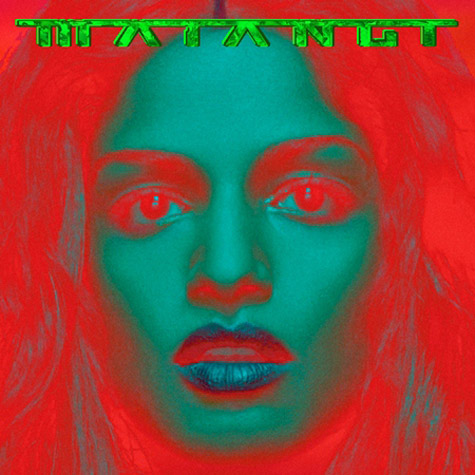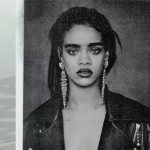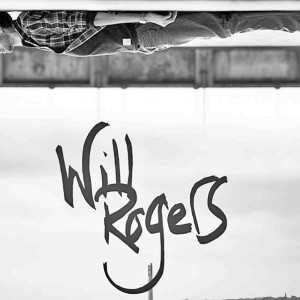Music review: M.I.A. – Matangi
The Northampton Gent review the latest album from English-Sri Lankan recording artist Mathangi Arulpragasam, better known under her moniker M.I.A.

The downside of being a forward thinker is they rarely get the flowers when they can still smell them. For the pioneers, it is only with hindsight that they receive recognition. In an age where the iPods of twenty somethings are dominated by electronic music and its forever growing sub genres, you have to recognise M.I.A. as a forerunner to the nonstop electro hits in the music scene of today. Before Beyonce teamed up with ex Major Lazer producer Switch in 2011 for the hit single ‘Run The World (Girls)’, M.I.A. had created a similar, distinctive sound in 2005 with producers such as Switch and Diplo. This sound has been replicated by present day artists without much credit going to one of the originators. The mainstream has become more welcoming to this unorthodox blend of Electro, Dance, Hiphop & R’n’B so with the release of her fourth studio album Matangi, it will be interesting to see this if this album can succeed where it’s overly experimental predecessor MAYA failed.
The debut single Bad Girls already gives listeners something that was missing on MAYA, in the form of a middle eastern inspired instrumental with catchy sing-along lyrics that ooze confidence and screams hit record; a theme that is repeated by Come Walk With Me. Come Walk With Me starts with guitar strums and bright synth stabs whilst M.I.A.’s laissez-faire attitude echoes throughout the track until a techno beat kicks in and picks up the intensity. That same intensity lasts for the remainder of the track which tackles a refreshing concept of friendship and social media. The repetitiveness and high pitched tone of M.I.A.’s vocals can cause annoyance the more times you hear the song but it’s a hit nonetheless.
Only 1 You, Warriors and Bring the Noize all take advantage of the ever-growing popular trap music scene, allowing M.I.A. to differentiate herself from other artists that have climbed on the bandwagon that she helped create. These three tracks really allow M.I.A. to demonstrate her rapping ability, especially the neck snapping track Bring The Noize, where it seems like you’d need Michael Phelps lung capacity to rap one of those verses.
M.I.A. ventures into new lands on the track Exodus, sampling R’n’B act The Weeknd’s Lonely Star. While M.I.A. doesn’t have much of a singing voice, there is something about how she holds a note on this song that sparks the right emotion to her listener. However at times the crowded instrumental can drown out the vocal and have you straining your ears to try and pick up all the words. This is a welcomed change of pace on the album, but could have been executed better if the instrumental was created from scratch, allowing more breathing room for M.I.A.
The low point comes towards the end of the album in Lighters. Despite M.I.A.’s lack of singing vocals, she manages to pull it off on tracks like Come Walk With Me and Exodus. On Lighters however, the high pitched, airy vocal fails to blend well with the minimalist instrumental, forcing listeners to consider pressing skip for the first time in the album.
Know It Ain’t Right is the closest thing to an R’n’B track that M.I.A. has made and is a pleasant surprise while Double Bubble Trouble infuses Reggae, Trap and Dance flawlessly for a song that has all the ingredients needed for a club anthem. Y.A.L.A is another tracked designed specifically for nightclubs. A play on Drake’s and Lil Wayne’s successful Y.O.L.O. (You Only Live Once), Y.A.L.A takes a different approach of ‘you always live again’. The instrumental is a rather contemporary dance track but makes its mark through a loud, muddy and distorted mix to the point where no matter what speakers you’re listening to the track through, it sounds like you are in a nightclub. M.I.A.’s personality really shines through on this song as well as on aTENDion where she cleverly rhymes a host of words with the ‘tend’ sound in them. The chorus for this track breaks into a house beat adding to the varied list of genres explored on this album.
The album can become overwhelming with the loud and fast paced variety of sounds relentlessly introduced to listeners in the earlier tracks until gradually mellowing towards the end, making the sequencing of songs questionable. The album could have benefited from being sequenced to have peaks and valleys rather than a slow decline of intensity. As a result, Matangi becomes an album difficult to listen to from start to finish; instead being more of a ‘pick what song you want to listen to’ album. However with so many incredible songs to pick from you are never disappointed. Overall this album sees M.I.A. return to form in an unapologetic and uncompromising fashion, with catchy records to rival her past work such as Bad Girls, and truly original songs like Double Bubble Trouble that will no doubt be imitated in the future.
7.5/10
With that said, how do you feel about Matangi? Would you have preferred a continuation to the boundary pushing MAYA or do you like that M.I.A. have returned to the sound that made her popular? Let us know how you feel and post a comment below.




